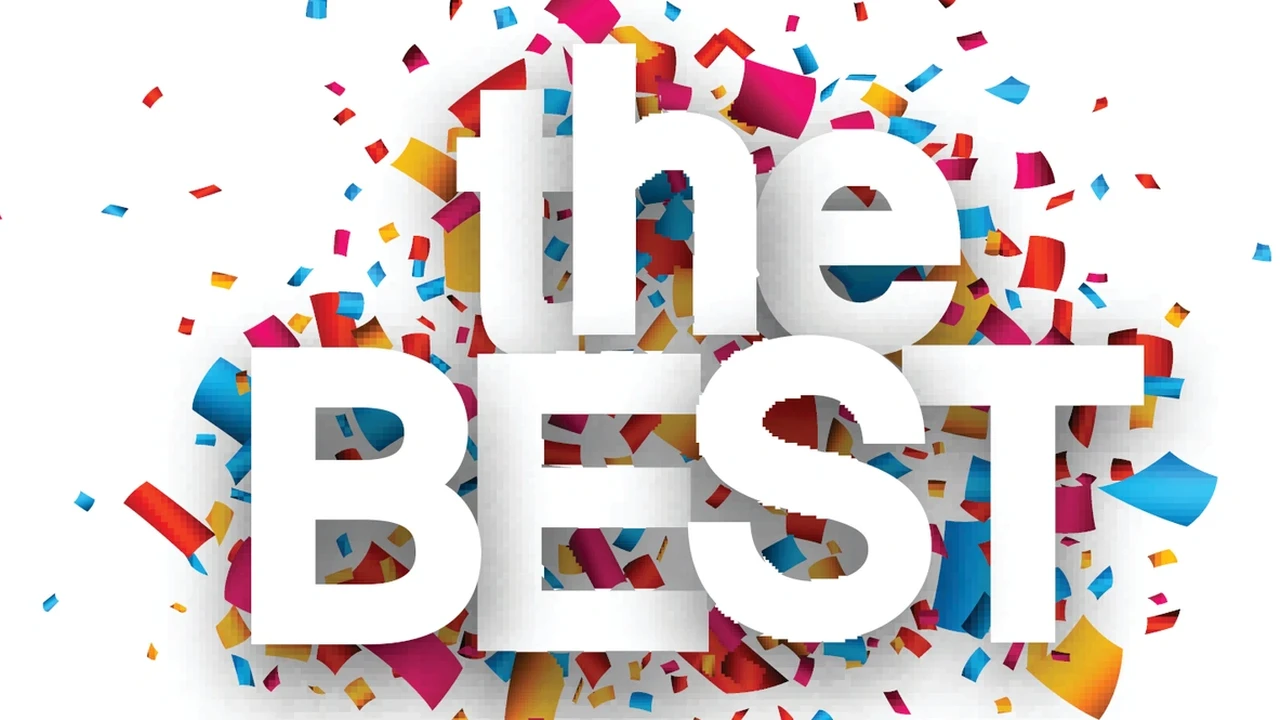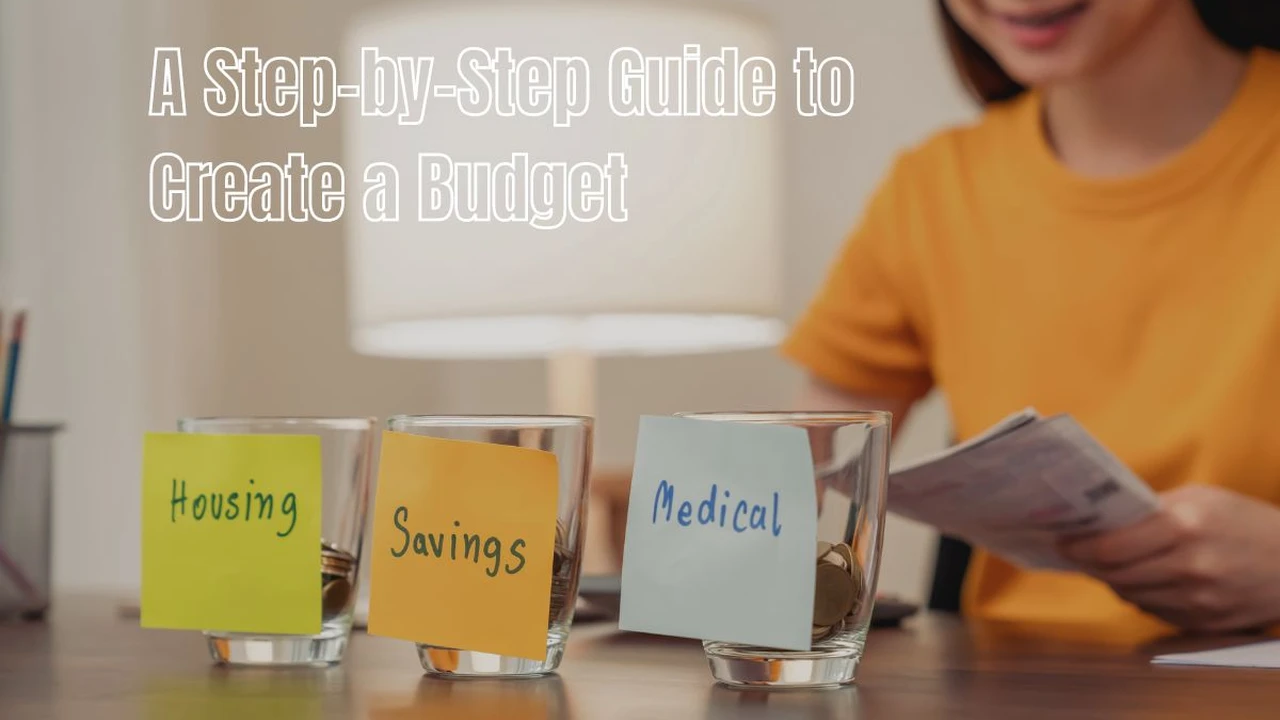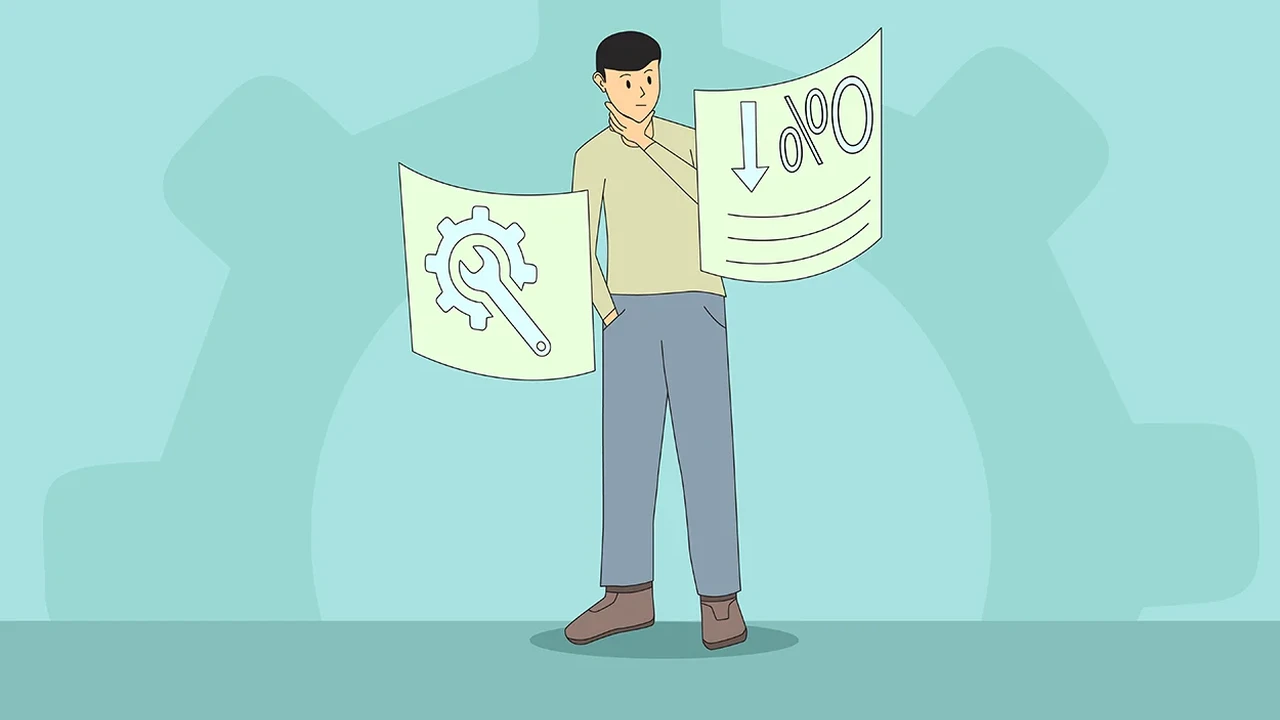Best Debt Relief Companies for Consumers
Discover the top debt relief companies offering effective solutions to help you overcome overwhelming debt.

Best Debt Relief Companies for Consumers
Hey there! Are you feeling swamped by debt? You're definitely not alone. Millions of people in the US and Southeast Asia find themselves in a similar boat, looking for a lifeline. The good news is, there are legitimate debt relief companies out there that can help you navigate these choppy financial waters. But with so many options, how do you pick the right one? That's exactly what we're here to figure out today. We're going to dive deep into some of the best debt relief companies, what they offer, how they work, and even give you a peek at some specific products and their costs. Let's get started!
Understanding Debt Relief Options and Services
Before we jump into specific companies, it's super important to understand what 'debt relief' actually means and the different paths you can take. It's not a one-size-fits-all solution, and what works for your neighbor might not be the best fit for you. Generally, debt relief can involve several strategies:
- Debt Consolidation: This is where you take out a new loan to pay off multiple smaller debts, ideally with a lower interest rate and a single monthly payment. Think of it as streamlining your debt.
- Debt Management Plans (DMPs): Offered by credit counseling agencies, DMPs involve working with your creditors to reduce interest rates or waive fees, allowing you to pay off your unsecured debts through a single monthly payment to the agency.
- Debt Settlement: This is a more aggressive approach where a company negotiates with your creditors to pay back a portion of what you owe, rather than the full amount. This can significantly reduce your debt, but it comes with risks.
- Bankruptcy: While often a last resort, bankruptcy (Chapter 7 or Chapter 13) can provide a fresh start by discharging certain debts or creating a repayment plan.
Each of these has its own set of pros and cons, and they can all impact your credit score differently. It's crucial to understand these nuances before committing to any service.
Top Debt Relief Companies for Effective Solutions
Alright, let's get to the main event! We've scoured the market and identified some of the top debt relief companies that consistently deliver for consumers. We'll look at their services, what makes them stand out, and who they might be best for.
National Debt Relief A Leading Debt Settlement Provider
National Debt Relief is one of the biggest names in the debt settlement industry, and for good reason. They've helped thousands of people get out from under crushing unsecured debt, like credit card debt, medical bills, and personal loans.
How National Debt Relief Works for Debt Settlement
When you enroll with National Debt Relief, they'll first assess your financial situation to see if debt settlement is a good fit. If it is, you'll stop making payments directly to your creditors and instead make a single monthly payment into a dedicated savings account that you control. During this time, National Debt Relief's negotiators will work with your creditors to settle your debts for less than the full amount. Once a settlement is reached, funds from your savings account are used to pay off the creditor. This process typically takes 2-4 years.
Key Features and Benefits of National Debt Relief
- Significant Debt Reduction: Clients often see a reduction of 30-50% of their enrolled debt after fees.
- Dedicated Support: They offer personalized support from certified debt specialists.
- No Upfront Fees: You only pay fees once a debt has been successfully settled.
- Accreditation: Accredited by the American Fair Credit Council (AFCC) and the International Association of Professional Debt Arbitrators (IAPDA).
Who is National Debt Relief Best For?
National Debt Relief is ideal for individuals with a significant amount of unsecured debt (typically $10,000 or more) who are struggling to make minimum payments and are open to the potential credit score impact of debt settlement. It's a good option if you're looking for a way to get out of debt faster than traditional repayment methods, even if it means a temporary hit to your credit.
Estimated Costs and Fees for National Debt Relief
National Debt Relief charges a fee that is a percentage of the enrolled debt, typically ranging from 15% to 25%. This fee is only collected after a debt has been settled and you've made payments towards it. For example, if you enroll $20,000 in debt and they settle it for $10,000, and their fee is 20% of the enrolled debt, you'd pay $4,000 in fees. So, your total cost would be $10,000 (settled amount) + $4,000 (fees) = $14,000, saving you $6,000 from your original $20,000 debt.
Freedom Debt Relief Another Strong Debt Settlement Contender
Freedom Debt Relief is another powerhouse in the debt settlement space, with a long history of helping consumers resolve their debt. They operate similarly to National Debt Relief, focusing on negotiating with creditors on your behalf.
How Freedom Debt Relief Facilitates Debt Settlement
Like National Debt Relief, Freedom Debt Relief works by having you deposit funds into a special savings account. They then contact your creditors to negotiate a lower payoff amount. Once an agreement is reached, they use the funds from your account to pay the creditor. They emphasize a personalized approach, with dedicated debt specialists guiding you through the process.
Key Features and Benefits of Freedom Debt Relief
- Extensive Experience: One of the oldest and largest debt settlement companies.
- Client Portal: Offers a robust online portal for clients to track their progress.
- Financial Education: Provides resources to help clients improve their financial literacy.
- Accreditation: Also accredited by the AFCC and IAPDA.
Who is Freedom Debt Relief Best For?
Freedom Debt Relief is suitable for individuals with substantial unsecured debt (typically $7,500 or more) who are facing financial hardship and are looking for a structured program to reduce their debt burden. If you appreciate a company with a long track record and strong online tools, Freedom Debt Relief could be a great fit.
Estimated Costs and Fees for Freedom Debt Relief
Freedom Debt Relief's fees are also performance-based, meaning they only charge a fee once a debt is settled. Their fees typically range from 15% to 25% of the enrolled debt. The exact percentage can vary based on your state and the amount of debt you have. For instance, if you have $15,000 in debt and they settle it for $8,000, and their fee is 20% of the enrolled debt, you'd pay $3,000 in fees. Your total cost would be $8,000 (settled amount) + $3,000 (fees) = $11,000, saving you $4,000.
Consolidated Credit A Non-Profit Credit Counseling Option
If debt settlement feels too risky or you're not comfortable with the credit impact, a non-profit credit counseling agency like Consolidated Credit might be a better fit. They primarily offer Debt Management Plans (DMPs).
How Consolidated Credit Helps with Debt Management Plans
Consolidated Credit's certified credit counselors will review your finances, help you create a budget, and then, if appropriate, set you up on a Debt Management Plan. With a DMP, they negotiate with your creditors to lower interest rates, waive late fees, and consolidate your unsecured debts into one manageable monthly payment. You make this single payment to Consolidated Credit, and they distribute it to your creditors. The goal is to pay off your debt in 3-5 years.
Key Features and Benefits of Consolidated Credit
- Non-Profit Status: Focuses on consumer education and financial well-being.
- Lower Impact on Credit: DMPs generally have a less severe impact on your credit score compared to debt settlement.
- Financial Education: Offers extensive free educational resources.
- Accreditation: Accredited by the National Foundation for Credit Counseling (NFCC) and the Council on Accreditation (COA).
Who is Consolidated Credit Best For?
Consolidated Credit is an excellent choice for individuals who can still afford to make their debt payments but are struggling with high interest rates or multiple payments. It's also a good option if you want to avoid the more significant credit score impact of debt settlement or bankruptcy, and you prefer a structured repayment plan with financial guidance.
Estimated Costs and Fees for Consolidated Credit
As a non-profit, Consolidated Credit's fees are generally much lower than debt settlement companies. They typically charge a small one-time setup fee (often around $39) and a monthly maintenance fee (usually $25-$75, capped by state regulations). These fees are often waived or reduced for those facing extreme hardship. For example, if your monthly payment on a DMP is $300 and the monthly fee is $50, your total payment to Consolidated Credit would be $350, with $300 going directly to your creditors.
American Consumer Credit Counseling A Comprehensive Credit Counseling Service
American Consumer Credit Counseling (ACCC) is another highly reputable non-profit organization offering a range of financial services, with a strong emphasis on credit counseling and debt management.
How ACCC Supports Debt Management and Financial Wellness
ACCC provides free credit counseling sessions where certified counselors review your financial situation, help you create a budget, and explore all available debt relief options. If a Debt Management Plan is the best fit, they will work with your creditors to reduce interest rates and consolidate your payments, similar to Consolidated Credit. They also offer bankruptcy counseling and housing counseling.
Key Features and Benefits of ACCC
- Holistic Approach: Offers a wide array of counseling services beyond just DMPs.
- Personalized Plans: Focuses on creating customized solutions for each client.
- Educational Resources: Provides extensive educational materials and workshops.
- Accreditation: Member of the NFCC and accredited by the COA.
Who is ACCC Best For?
ACCC is ideal for anyone seeking comprehensive financial guidance, not just debt relief. If you're unsure which debt relief option is right for you, or if you need help with budgeting, housing, or even bankruptcy counseling, ACCC's broad range of services makes them a great choice. They are particularly good for those who prefer a non-profit approach with a strong educational component.
Estimated Costs and Fees for ACCC
Similar to Consolidated Credit, ACCC's fees for Debt Management Plans are low. They typically charge a one-time setup fee (often around $39) and a monthly maintenance fee (usually $25-$75, depending on your state and financial situation). Free counseling sessions are always available. For example, if you have $12,000 in debt and your DMP reduces your monthly payments from $500 to $350, with a $40 monthly fee, you'd pay $39 upfront and then $390 each month to ACCC, with $350 going to your creditors.
InCharge Debt Solutions Another Reputable Non-Profit
InCharge Debt Solutions is another well-regarded non-profit credit counseling agency that has been helping consumers manage and eliminate debt for decades. They are known for their clear communication and effective DMPs.
How InCharge Debt Solutions Assists with Debt Management
InCharge offers free credit counseling to assess your financial health and determine the best course of action. If a DMP is recommended, they will work with your creditors to secure concessions like reduced interest rates and waived fees. You'll make one consolidated payment to InCharge, and they will disburse the funds to your creditors. Their goal is to help you become debt-free within 3-5 years.
Key Features and Benefits of InCharge Debt Solutions
- Clear Communication: Known for transparent processes and excellent client support.
- Financial Education: Offers a wealth of free resources, including articles, webinars, and budgeting tools.
- Bilingual Services: Provides services in both English and Spanish.
- Accreditation: Member of the NFCC and accredited by the COA.
Who is InCharge Debt Solutions Best For?
InCharge Debt Solutions is a great option for individuals who are looking for a straightforward and supportive path to debt relief through a Debt Management Plan. If you appreciate clear communication, comprehensive educational resources, and the backing of a reputable non-profit, InCharge could be an excellent fit for your needs. They are particularly helpful for those who prefer a structured repayment plan over debt settlement.
Estimated Costs and Fees for InCharge Debt Solutions
As a non-profit, InCharge's fees are designed to be affordable. They typically charge a one-time setup fee (often around $39) and a monthly administrative fee (usually $25-$50, depending on your state and the complexity of your plan). These fees are often negotiable based on your financial situation. For example, if you have $10,000 in credit card debt and your DMP reduces your monthly payments from $400 to $280, with a $35 monthly fee, you'd pay $39 upfront and then $315 each month to InCharge, with $280 going to your creditors.
Comparing Debt Relief Companies Key Considerations
Choosing the right debt relief company isn't just about picking the biggest name. It's about finding the best fit for your unique situation. Here are some key factors to consider when comparing your options:
Type of Debt Relief Offered Debt Settlement vs Credit Counseling
This is probably the most crucial distinction. Debt settlement companies (like National Debt Relief and Freedom Debt Relief) aim to reduce the total amount you owe, but they can have a more significant negative impact on your credit score and may involve collection calls during the negotiation period. Credit counseling agencies (like Consolidated Credit, ACCC, and InCharge) focus on DMPs, which aim to reduce interest rates and consolidate payments, generally with a less severe credit impact, but you still pay back the full principal amount.
Fees and Costs Transparency is Key
Always get a clear understanding of all fees involved. Debt settlement companies typically charge a percentage of the enrolled debt, while credit counseling agencies charge smaller setup and monthly maintenance fees. Make sure there are no hidden costs and that the fee structure is transparent.
Accreditation and Reputation Trustworthy Services
Look for companies accredited by reputable industry organizations like the American Fair Credit Council (AFCC) for debt settlement, or the National Foundation for Credit Counseling (NFCC) and the Council on Accreditation (COA) for credit counseling. Check online reviews and consumer protection agency records to gauge their reputation.
Customer Service and Support Personalized Guidance
You'll be working closely with this company for months or even years, so good customer service is essential. Do they offer personalized support? Are their counselors certified? Can you easily reach them when you have questions?
Impact on Credit Score Understanding the Consequences
Both debt settlement and DMPs can affect your credit score, but in different ways and to different degrees. Debt settlement typically has a more severe and longer-lasting negative impact. DMPs, while potentially showing up on your credit report, are generally viewed more favorably than defaulting on debts or debt settlement.
Eligibility Requirements Do You Qualify
Each company and program has specific eligibility criteria. For debt settlement, you usually need a significant amount of unsecured debt and demonstrable financial hardship. For DMPs, you need to be able to afford the consolidated monthly payment. Make sure you meet the requirements before enrolling.
Real-World Scenarios Choosing the Right Debt Relief Path
Let's look at a couple of hypothetical situations to help you see how these companies and services might apply to real life.
Scenario 1 Overwhelmed by High-Interest Credit Card Debt
Meet Sarah, a 35-year-old living in Kuala Lumpur, Malaysia. She has $25,000 in credit card debt spread across four different cards, with interest rates ranging from 18% to 25%. She's making minimum payments, but the balances barely budge, and she feels like she's drowning. She's also recently had a reduction in her work hours, making it even harder to keep up.
Recommendation: For Sarah, National Debt Relief or Freedom Debt Relief could be strong contenders. Given her significant debt amount and recent financial hardship, debt settlement could offer a quicker path to becoming debt-free by reducing the principal she owes. While her credit score would take a hit, the long-term benefit of being free from $25,000 in high-interest debt might outweigh the temporary credit impact. She'd need to be comfortable with the idea of not paying her creditors directly for a period and the potential for collection calls.
Scenario 2 Multiple Debts but Still Managing Payments
John, a 42-year-old from Seattle, USA, has $15,000 in unsecured debt (a personal loan, a medical bill, and two credit cards). He's making all his payments on time, but he's stretched thin, and the high interest rates are making it tough to save for his kids' education. He wants to simplify his payments and reduce interest without severely damaging his credit.
Recommendation: John would likely benefit more from a Debt Management Plan offered by a non-profit like Consolidated Credit, ACCC, or InCharge Debt Solutions. Since he's still able to make payments, a DMP would allow him to consolidate his debts into one lower monthly payment, often with significantly reduced interest rates. This approach would have a less severe impact on his credit score compared to debt settlement, and he'd receive valuable financial counseling to help him stay on track.
Important Considerations Before Enrolling
Before you sign on the dotted line with any debt relief company, take a deep breath and consider these points:
- Credit Score Impact: Understand that most debt relief options will affect your credit score. Debt settlement typically has a more negative impact than a DMP.
- Tax Implications: Settled debt might be considered taxable income by the IRS (or equivalent tax authorities in Southeast Asia). Always consult with a tax professional.
- Collection Calls: If you opt for debt settlement, expect collection calls from creditors until a settlement is reached. Reputable companies will guide you on how to handle these.
- Timeframe: Debt relief isn't an overnight fix. DMPs typically take 3-5 years, while debt settlement can take 2-4 years.
- Your Commitment: Success in any debt relief program heavily relies on your commitment to making consistent payments and sticking to your budget.
Final Thoughts on Choosing Your Debt Relief Partner
Navigating debt can be incredibly stressful, but you don't have to do it alone. The best debt relief companies offer a beacon of hope, providing structured paths to financial freedom. Whether you choose debt settlement with a company like National Debt Relief or Freedom Debt Relief, or a Debt Management Plan through a non-profit like Consolidated Credit, ACCC, or InCharge Debt Solutions, the key is to do your homework. Compare their services, understand their fees, check their accreditations, and make sure they align with your financial goals and comfort level. Take that first step today, and you'll be well on your way to a healthier financial future!
:max_bytes(150000):strip_icc()/277019-baked-pork-chops-with-cream-of-mushroom-soup-DDMFS-beauty-4x3-BG-7505-5762b731cf30447d9cbbbbbf387beafa.jpg)






